Captain Fantastic: A Thought-Provoking Tragicomedy of Off-Grid Parenting
Captain Fantastic presents a unique and thought-provoking tragicomedy about a man’s unconventional approach to raising his children outside the bounds of mainstream society.
Ben (Viggo Mortensen) and his wife have chosen to raise their six children deep in the wilderness, far removed from the trappings of civilization. They instill in their children a comprehensive education, encompassing hunting, survival skills, language acquisition, and scientific knowledge. Simultaneously, they cultivate a deep-seated skepticism towards capitalism, consumerism, and organized religion. The children are immersed in classic literature and forbidden from engaging with contemporary music or television.
When Ben’s wife experiences a severe exacerbation of her mental health condition, she is hospitalized. Tragically, she later takes her own life while battling depression. Despite her Buddhist beliefs, her affluent parents insist on a Christian burial. They forbid Ben from attending the funeral, threatening legal action and the potential loss of his children. After much deliberation, Ben decides that he must bring his children to pay their respects. The family embarks on a journey in their trusty bus.
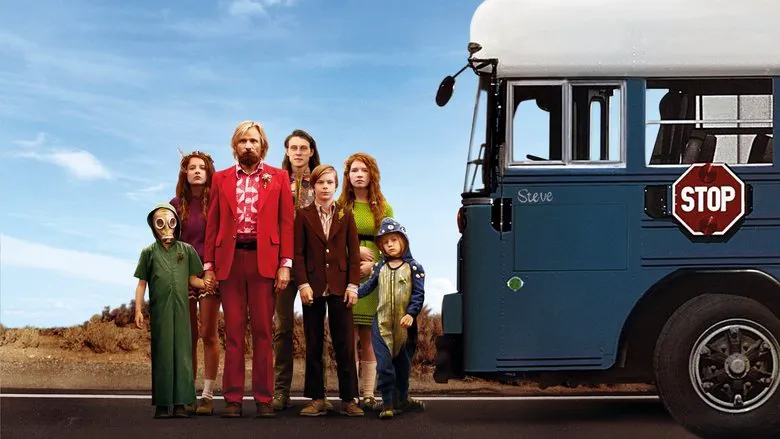
During filming, Viggo Mortensen developed such a close bond with the young actors playing his children that they affectionately called him “Dad” even off-screen.
Meta-Commentary Within the Narrative
Complex and nuanced films often feature meta-scenes where directors, through their characters, subtly convey the underlying themes they wish to explore. Captain Fantastic, an arthouse tragicomedy helmed by Matt Ross, a character actor who has recently found success in directing and screenwriting, is no exception. In one particular scene, Ben’s daughter offers her interpretation of “Lolita”: “It’s a book that makes you sympathize with a pedophile. I empathize with him, even though I hate him for what he does.”
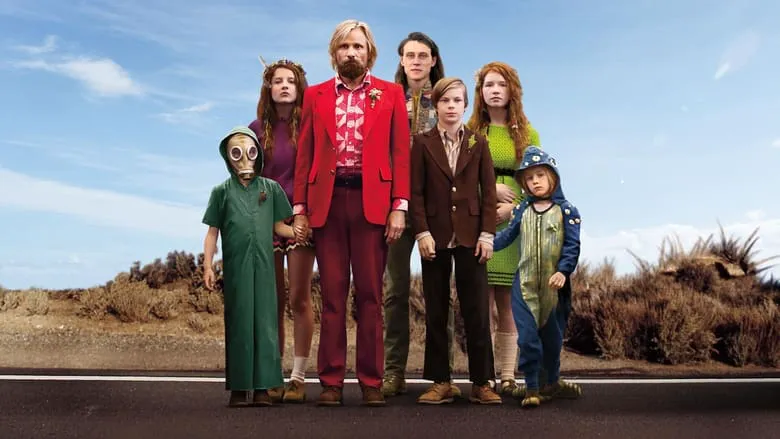
Director Matt Ross has stated that the film was partly inspired by his own experiences as a parent. He has two children.
This insightful analysis of “Lolita” resonates with the core of Captain Fantastic. The film doesn’t shy away from acknowledging the potentially monstrous nature of Ben’s actions. The issue isn’t simply homeschooling, taking children on perilous climbing expeditions, or celebrating Noam Chomsky Day instead of Christmas. Such practices are not uncommon in America, where parenting styles vary widely. Ben’s true transgression lies in isolating his children in an environment where their only social interactions are with each other and their parents. Even totalitarian religious cults typically involve multiple families and children. In Ben’s world, the only other beings are the deer they hunt with knives and bows.
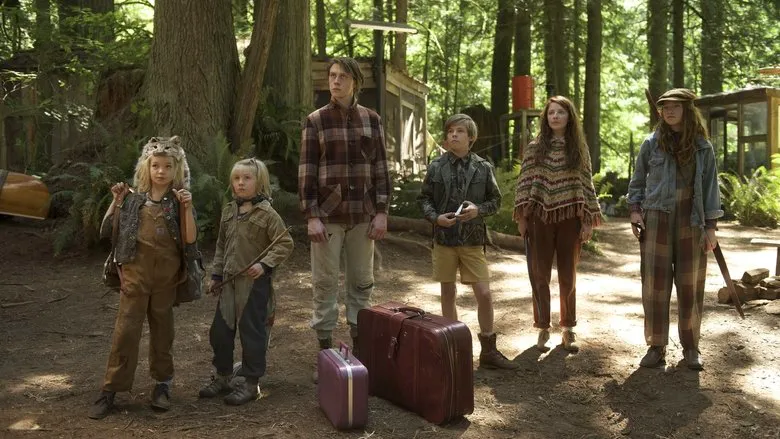
The Price of Isolation
What is the point of teaching children multiple languages if the eldest son’s attempts to engage with girls result in humiliating failures? He struggles to connect with them because he has never truly interacted with anyone outside his immediate family. Socialization is a cornerstone of society, yet Ben primarily teaches his children how to avoid the attention of law enforcement and child protective services.
Despite these concerns, Ben doesn’t evoke a desire for condemnation. Instead, Captain Fantastic presents a critical perspective on “ordinary” America through the eyes of Ben’s family (“Why are all these people so fat?”) and portrays Ben as a loving, caring father with unwavering convictions. While his methods are undeniably extreme, it’s refreshing to see children who are well-versed in literature rather than fixated on the lives of Instagram celebrities.
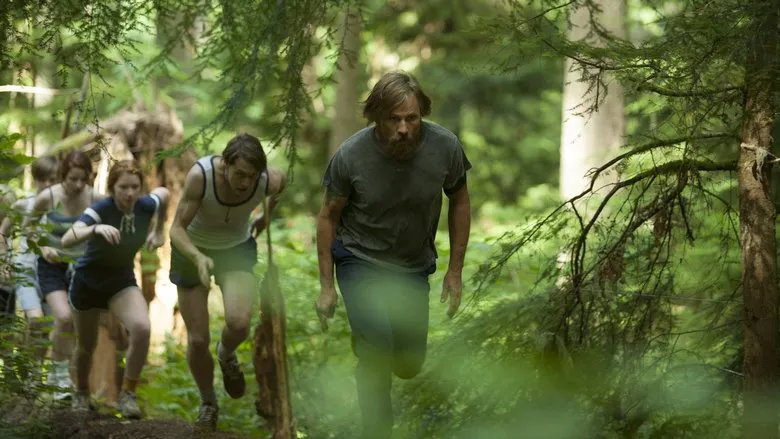
A Crisis of Faith
To humanize Ben and highlight his inherent goodness, the film introduces a “crisis of faith” where he begins to question his methods. He faces opposition not only from his overbearing father-in-law but also from his eldest sons, one of whom desires to attend college, while the other yearns for a “normal” life with his grandparents. Without revealing the ending, it’s safe to say that the film offers a satisfying resolution for everyone involved, including the protagonist.
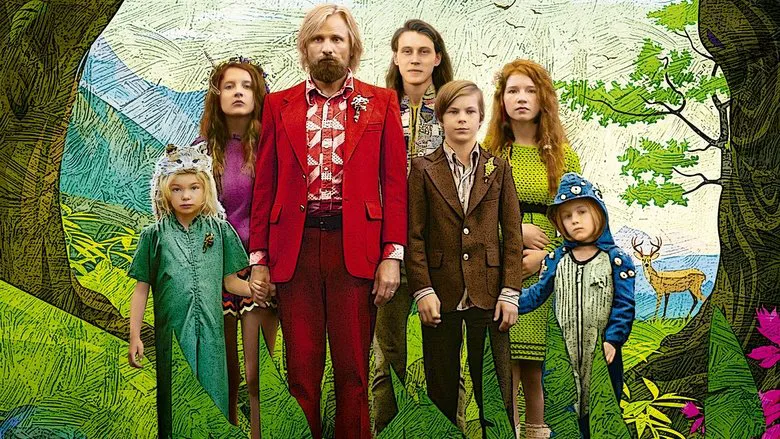
In essence, this is not a film about a totalitarian cult leader deserving of scorn and hatred, but rather a quirky yet compassionate parent deserving of understanding and empathy. Or is it? Perhaps Ross, like Nabokov before him, is forcing viewers to see the world from a “wrong” perspective, one that the author himself doesn’t necessarily endorse. The reference to “Lolita” allows for such an interpretation, adding a layer of intrigue to the film.
A Journey of Self-Discovery
To fully immerse viewers in the world of Ben’s family, the film spends its first half-hour in the wilderness before sending the characters on a journey to encounter relatives and strangers. The central conflict emerges later, after Ben delivers a passionate eulogy at the funeral. This is not a film for those seeking instant gratification. Like many arthouse dramas, Captain Fantastic demands patience and contemplation. However, it’s far from “boring,” as the unique upbringing and its manifestations are both amusing and fascinating to observe, even if one disagrees with Ben’s philosophy.
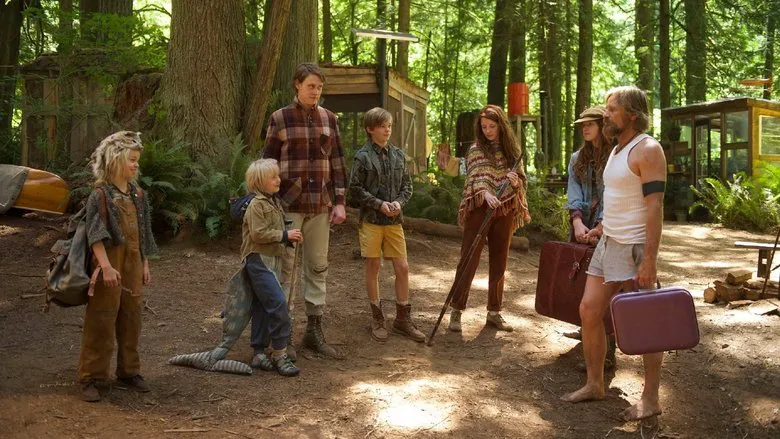
It’s worth noting that disagreeing with Ben entirely may be challenging, as Ross has imbued the character with a blend of both left-wing and right-wing ideologies. As a result, almost everyone can find something to appreciate. Some may admire the survival skills, others the family’s musical endeavors, the emphasis on fundamental sciences, the characters’ vibrant attire, Ben’s unwavering honesty with his children, or their ability to outsmart the police. Conversely, this diversity also ensures that no one will agree with everything Ben preaches, unless they happen to be his real-life twin.
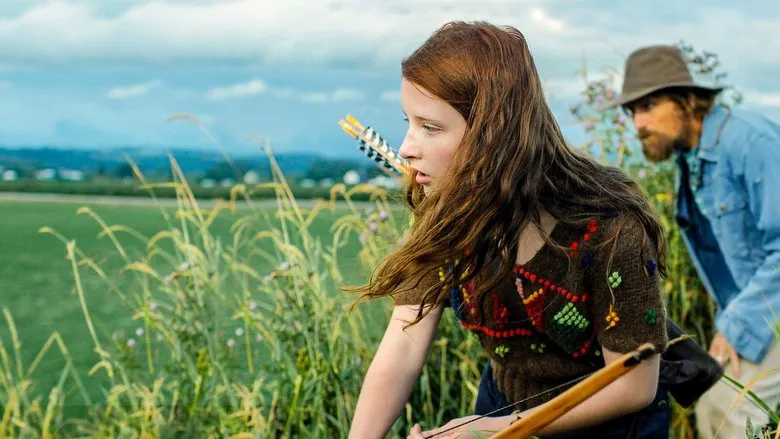
A Missed Opportunity for Deeper Exploration
Unfortunately, the film falls short of being truly intellectually stimulating. It lacks genuine debates about the merits and drawbacks of various ideas, despite Ben’s emphasis on the value of discussions and his suggestion of a family debate on which holidays to celebrate. Ultimately, all decisions in Captain Fantastic are driven by emotion rather than reason, which feels like a disappointing self-betrayal. As the saying goes, “in for a penny, in for a pound…” However, Ross can be excused by the fact that the American divide between liberals and conservatives is driven more by emotion and blind faith than by scientifically verified calculations. Therefore, it’s not surprising that the characters proclaim one thing but act quite differently.
Finally, Viggo Mortensen, sporting a beard, is remarkably convincing as Ben, flawlessly portraying this complex character and constantly uncovering new nuances. It wouldn’t be surprising to see Mortensen’s name among the Oscar nominees next year. The young actors playing his children are also excellent, especially George MacKay as the eldest son, torn between loyalty to his father and the desire to attend university. In fact, there are no poorly acted roles or miscast actors in the film. This is undoubtedly a significant strength for a dialogue-driven family drama that, while boasting beautiful cinematography by French cinematographer Stéphane Fontaine (a two-time César Award winner), ultimately relies on acting and provocative ideas rather than visuals.